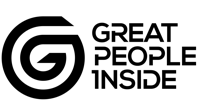The High Importance of Objectivity in Strategic People Analytics
As John F Kennedy said, “Change is the law of life. And those who look only to the past or present are certain to miss the future.” That’s why organisations increasingly recognise the value of leveraging data to drive decision-making across the business. HR, being at the forefront of managing an organisation’s most vital asset – its people, has been quick to tap into the potential of strategic people analytics.
Today future ready organisations need to think critically about the assessments they use to ensure they provide the necessary objective data for effective people analytics, ultimately enhancing their existing HR systems.
Most organisations today have great technology that efficiently handles the people logistics aspects. Still, one area on the back burner is the advances made in assessment technology.
Many assessments in use today were developed before hybrid work, wellbeing, and burnout became part of the modern people challenges that HR must manage. Some liken older reviews to the equivalent of using the mobile phone technology from the late 90’s in a world where smart phones exist.
Traditional fixed “one size fits all” solutions for attracting, assessing, selecting, developing, and retaining people are no longer sufficient. That’s why it is crucial to be familiar with the latest assessment technology and the flexibility and employee lifecycle tools they offer.
What are People Analytics?
People analytics, also known as HR analytics or workforce analytics, refers to collecting and analysing employee data to gain insights and make data-driven HR decisions.
HR professionals can identify patterns, trends, and key indicators by utilising vast amounts of employee information. In short, indicators influence:
- strategic workforce planning,
- talent recruitment and retention,
- diversity and inclusion initiatives,
- performance management, and
- succession planning.
Objectivity at the core in people analytics
Recent studies highlight the significance of finding measurable connections between HR and business objectives. While at the same time reducing subjective decision-making in measuring HR and corporate performance.
However, in today’s data-driven world, HR professionals can mitigate bias and make more informed decisions by relying on objective data. Modern and flexible assessments provide access to raw data containing validated, objective data and insights, enhancing HR’s ability to make sense of data.
The power of assessments
New assessment technology enables HR professionals to analyse and better understand their workforce quickly and easily. These assessments provide objective data on various aspects of an individual employee’s profile, including:
- competencies,
- personality traits,
- cognitive abilities,
- behavioural tendencies,
- development areas, and
- skill levels.
By leveraging these assessments, HR professionals can gain valuable insights into an employee’s fit with:
- the role,
- the manager,
- the team, and
- the organisational culture.
Enhancing HRIS Systems
The seamless integration of APIs ensures that the factual data collected from assessments is easily accessible within the HRIS. This combination of information, supported by its objectivity, helps predict the immediate and future requirements regarding personnel and capabilities.
By incorporating this objective data into decision-making processes, HR professionals can minimise bias, improve employee experiences, and drive the growth of the business.
In conclusion, combining the potential of people analytics and modern, adaptable assessments means enhanced HR information systems with accurate individual data for more informed and strategic choices.
Contact us to power your strategic people analytics.
